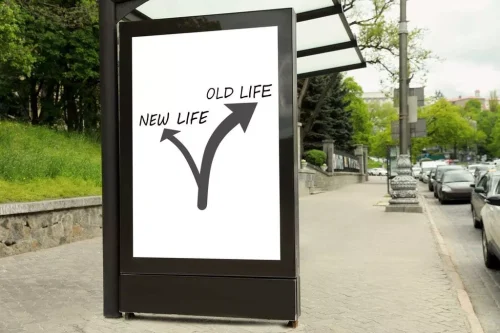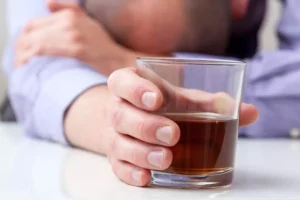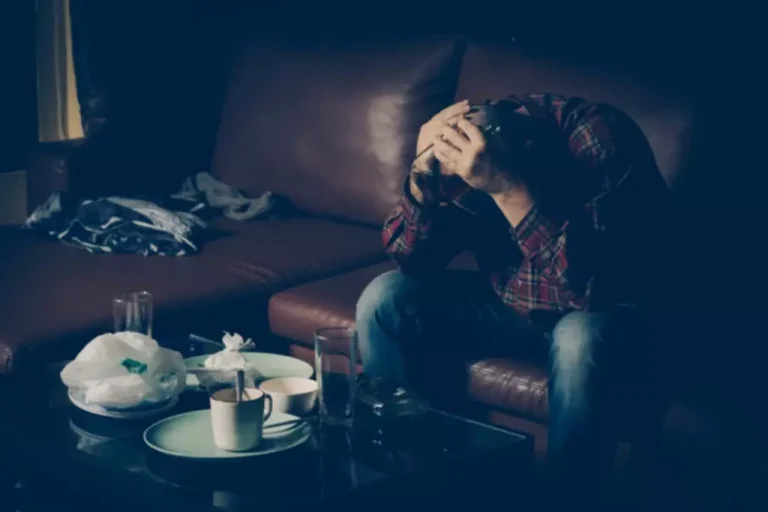Debunking Myths About Addiction Recovery
In some cases, people are genetically predisposed to become addicted to something — if they begin to use alcohol or drugs, they are more likely to become addicted to them. People may also turn to alcohol or drugs to self-medicate because they are struggling with depression, anxiety or another mental health issue. With the proper guidance and supervision, prescription medications can provide important, and sometimes life-saving, support during withdrawal. Once a patient reaches a certain point in their progress, their medical team can then begin to ease up on the use of medications to treat their symptoms.
- While it’s true that you may encounter some people who don’t understand your decision, treatment provides you with an environment where you are surrounded by people who know what you’re going through.
- It is a chronic disease influenced by various factors such as genetics, upbringing, trauma, and other environmental influences.
- As a result of scientific research, we know that addiction is a medical disorder that affects the brain and changes behavior.
- We need to educate people about responsible medication use and the risks of certain drugs, so misuse can be prevented.
Recognize that treatment works

Remember, addiction to drugs or alcohol happens when your brain becomes dependent on those chemicals to function. When those chemicals suddenly disappear, you can experience serious side effects that can also be life-threatening. People are often hesitant to enter recovery because of some of the myths they’ve heard about recovery programs or myths about substance misuse itself. If you’re like most people, you’ve probably heard a lot about drug addiction, but you haven’t heard much about recovery programs or what happens to someone when they decide to fight their addiction. These statistics demonstrate that recovery is not only possible but is a reality for millions of people who have overcome addiction.
Some common misconceptions about addiction can be damaging. Learn why drug & alcohol addiction isn’t a moral failing.
People wrongly think they are safe because they come from healthcare professionals. We need to educate people about responsible medication use and the risks of certain drugs, so misuse can be prevented. Treatment programs ensure individuals have a plan for success by setting the aim of lasting sobriety. Through complete care that considers all aspects of myths about addiction and recovery addiction, individuals can overcome their troubles and build a strong base for lasting recovery. The ultimate outcome is not just attaining short-term abstinence but making permanent changes in behavior, mindset, and quality of life. Aside from the physical side of addiction, treatment also looks into the psychological and emotional wellbeing of people.
Understanding substance use disorder: from dependency to disorder, explore signs, causes, treatment, and support.
Visit any news article or blog topic about addiction and see what the comments section says—it is typically riddled with emotionally charged, often callous remarks about people with addiction. While entering treatment may seem like the obvious action to take, it’s easy to see why a person may hesitate in acknowledging the issue by seeking help. There are many people who can use multiple substances and never develop an addiction, while others can use a substance only once and quickly spiral out of control. The potential for addiction is often made up of numerous factors including genetic predisposition, environmental factors, psychological disorders, and upbringing. While initial use may be a choice, over time, continued use can make changes in the brain that make it difficult to stop. This is why relapse is common and many will need multiple attempts at recovery before it is successful.
Relapse: Understanding and Changing Treatment Approach
If I’d have done that when I was still drinking, I’d have been convinced that a few drinks prior would’ve made it even better. And I’d have ruined the whole experience with a foggy head… let alone that I’d probably forget most of it anyway. So many of those thoughts feed the fear that a life lived without alcohol is going to miserable, and nearly impossible. When you’re already not sure if you really https://ecosoberhouse.com/ want to ditch the booze, some of these ideas can be exactly what you hold onto to give yourself a reason to keep drinking. According to SAMHSA, secure conversations improve treatment outcomes for those struggling with addiction (SAMHSA, 2021). “This issue resonates with me personally, because I have had loved ones, friends and colleagues face challenges due to this potentially fatal disease.”
Wait Until You’re at the Bottom to Seek Treatment
The harm of prescription drug misuse is far-reaching and devastating. It’s important to raise awareness about the risks and importance of responsible usage. Plus, the false idea that help is only needed at rock bottom ignores that addiction can influence anyone. It doesn’t care about age, money, race, religion, family, or work.
Myth #8: If you relapse after rehab, you’re back to square one.

It also gives you someone to turn to who understands what you’re dealing with and won’t judge you for it. There is an unfortunate stereotype that a person who becomes addicted to alcohol or drugs is a “bad” person. There are many reasons a person’s body becomes dependent on chemical substances, but it goes beyond who they are inside. When you complete your initial program, it will be wise to avoid the people and situations that may cause you to crave alcohol or other substances.
Myth 2: Only certain types of people become addicted

Relapse can be difficult, but it should not be observed as a failure; instead, treatment plans should be adjusted to promote long-term sobriety. Whilst addiction may have numerous contributing elements, it’s not just a choice made by individuals. It’s a consequence of various factors like genetic predisposition, environmental influences, and psychological vulnerabilities. Willpower alone is not enough to overcome addiction, highlighting the requirement for proper treatment and support systems. Additionally, addiction can affect anyone regardless of age, income, ethnicity, religion, family background, or career. The idea that individuals with addiction are awful and deserving of discipline comes from a lack of understanding about addiction’s nature.
Empower LGBTQ individuals to conquer addiction with LGBTQ-friendly resources and inclusive support programs.
- If you’re on the fence about entering a program, you need accurate information to help you make informed decisions about which program is best for you.
- Addiction shouldn’t be seen as a choice, but as a result of various factors.
- Relapse can be viewed as an opportunity for growth and learning rather than as a measure of success or failure.
- It also gives you someone to turn to who understands what you’re dealing with and won’t judge you for it.
The belief that individuals can quit their addiction “cold turkey” without any professional help or treatment is both unrealistic and potentially dangerous. While it is true that some individuals may be able to stop using substances without formal treatment, for many, the withdrawal symptoms and cravings can be severe and even life-threatening. By challenging this stereotype, we can better understand the complexities of addiction and support individuals in seeking the help they need to maintain or rebuild their lives. There is a prevailing stereotype that persons with an addiction are unable to function in society, hold down jobs, or maintain healthy relationships. This misconception paints a picture of persons with an addiction as dysfunctional and unproductive individuals, further perpetuating stigma and misunderstanding. Rather than viewing relapse as a failure, it’s important to recognize it as an opportunity to reevaluate and adjust one’s recovery plan.
We must also actively engage in conversations about addiction online and offline. This includes sharing stories of recovery and correcting false information. By participating, we work to change societal attitudes towards addiction.
